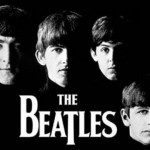I recently interviewed Andy Crouch for our upcoming series on “The Future of Evangelicalism,” and the interview was too long and too rich to include the whole thing (darn him!). So I want to post the first half of the interview (on his past work) here, and the second half (on his present work) will be posted in the article. Here it is:
First some background. Your book, Culture-Making, created quite a splash. It’s a favorite amongst intellectuals, artists and culture influencers. What did you set out to accomplish, and do you think you hit your mark?
What I set out to accomplish was to change the dominant evangelical posture toward culture, from, on the one hand, criticizing culture, and on the other hand consuming culture. I wanted to move us away from both of those postures, which are the two dominant postures now to a new pair of postures: cultivating and creating.
Creating is the easier one to explain: it’s actually seeing ourselves as responsible to bring into being new cultural goods. Not just to complain about or to consume the ones that exist, but to be agents of creativity in our culture.
Cultivating is a word that’s less obvious. People talk about it less when they talk about my book, but it’s very important to me. I think of cultivating as keeping what is already good in culture good. It requires care and discernment, weeding out. Ultimately the goal is not just to innovate, but also to preserve what is healthy and flourishing in any given culture, and to pass it on to the next generation at least as good as when we arrived.
Unfortunately, for a whole host of reasons, evangelicalism has not been known either for cultivating or creating. We’re certainly known as critics, and the reality is that we are often merely consumers just like our neighbors. Sometimes we’re known for copying culture and creating Christian versions. So we have “Stuff White People Like,” and along comes “Stuff Christians Like.” The examples of cultural imitation can be multiplied endlessly. But what about culture innovation and cultivating? That’s what I hope we can pass on to the next generation.
It’s very hard to say whether I hit the mark. What we’re talking about here is a shift in posture for a very complex nationwide movement. I would say that it will be ten years before we will know if anything of any value came from my book. Any serious cultural innovation has to be judged in at least ten year increments. But I could not be more encouraged about its reception, the enthusiasm that has greeted it, and the range of people that are reading it. I certainly expected that artists would read it and like it, but I’m thrilled that senior executives at Apple Computer, and dentists, contractors, and architects are reading it. That is very encouraging to me. Whether that leads in fact to a dramatic change in the way we position ourselves in culture is yet to be seen.
You speak of cultivating as, at least in part, preserving the goods already in culture. Can you give some examples of goods we should preserve?
There are many answers to that. The first that comes to mind, actually, for me, is reading. Evangelicalism, and Christianity as a whole, is a religion of books. The more conventional thing is to say “a book.” But the Bible is really a library, not a book. It’s a library of books that requires and rewards sustained study, engagement and attention.
We are living in a culture that is forgetting how to read. That’s bad for our culture, but it’s really bad for our Christian faith. I suppose that post-modern, post-industrial western civilization will stumble along somehow without a group of people who know how to seriously read and engage with texts—or with a small, elite educated class that knows how to do that. But I sure don’t know how a serious Christian movement can be sustained, even in a stumbling fashion, without reading.
So it seems to me that Christians definitely need to commit themselves to preserving in culture not necessarily books as physical objects, but the practice of serious reading and attention. If we don’t do it, I don’t know who will.
Another thing that we have, at times, been good at, although we’ve sometimes been quite legalistic about this, is preserving rest and Sabbath. It is not that long ago, in my adopted home state of Massachusetts, that most stores were closed on Sundays, because of the so-called Blue Laws. There was a rhythm of work and rest built into society. We now live in a world that sees no need for those sorts of Puritan restrictions on time—and consequently has no idea how to stop. This is something our parents knew how to do. Whether they were personally religious or not, they were influenced by Jewish and Christian traditions of Sabbath. The culture around us is trying to grope its way back towards Sabbath. There’s a very interesting book out right now, called Hamlet’s Blackberry that tries to grapple with what technology is doing to us and proposes a kind of Sabbath from technology on a regular basis.
This is something Christians can be in the vanguard of preserving and cultivating that is not new, cultural innovation, but something that has sustained Western culture for millennia.
There are many other things we can talk about. To point to something very different and prosaic and seemingly uninteresting: the rule of law. My involvement with the International Justice Mission has awakened me to how significant this cultural inheritance is, that laws are stronger than men and even powerful men should be held accountable to laws. This is something that many people around the world cannot take for granted. Certainly, the rule of law does not function perfectly in the United States, but it functions a heck of a lot better than in other places around the world. Now they question is whether we can preserve it, and will Christians be known as those who are serious about the rule of law rather than pursuers of their own special interests?
What products of cultural creation should we expect to see over the next 10 years, specifically coming out of the Christian setting, that will contribute toward the kingdom of God?
Clearly, one of the things that is very cutting-edge, and has tremendous potential for good and tremendous potential for harm, is the biotechnology. My layperson’s sense is that the most important problem our society needs to solve is energy. Where will we get sustainable sources of energy that make true human flourishing possible? A lot of the flourishing of human culture in industrial societies is absolutely predicated on the availability of energy. But our sources of energy are obviously compromised and compromising of the planet. And again, this is just my layperson’s sense, but it seems that biological pathways toward the creation of sustainable fuels are among the most promising.
Nuclear energy delivers a lot of power but at a very steep environmental cost. I happen to think we should pursue that as well. But what we really should pursue are the biological pathways to sustainable fuel.
This is why you need to think in 10, even 30 or 50 year increments. We need a generation of Christians and others who are serious enough about the possibilities here that they get the in-depth expertise and training to contribute to these kinds of fields. At the very same time, these same fields, which are tinkering with the tools of life at a more granular level than we’ve ever been able to do before, have a tremendous potential for misuse, unethical use, and if we as Christians do not have expertise in these areas, our ethical concerns will be brushed aside by the experts.
Even if we gain expertise, we will have an uphill fight to convince scientists that there are some things that we can do but should not do. Just as this was the case in the twentieth century with the harnessing of nuclear power and the corresponding threat of nuclear war, we are going to have the same challenge with biological technology in the twenty-first century. And if we do not have people with a commitment to an ethic greater than just doing whatever is possible, who are experts in these fields, we are going to have very little ability to make a case that there are some things that should not be done with the technologies of life.
There’s also a very interesting thing happening in the arts world right now. The art world is exhausted by modernism. Modernism rejected beauty as a criterion for the practice of art. In this reaction to beauty, serious art must be difficult; it must not be pleasing; above all it must not be anything that any ordinary person would not want to hang on the wall in their home. It must not be “decorative”—there is no greater swear word in the art world today than “decorative.” Yet the art world is now reconsidering what it might mean to pursue beauty. What is clear is that beauty that will be convincing to postmodern artists and postmodern cultural elites is not going to look the way that it looked 200 years ago.
There’s a tremendous opportunity for a new generation of Christian artists to propose to their fellow artists a way of looking at the world that is beautiful without being sentimental. Artists are beginning to do this. I’ll give you an example from the literary world. I just read a beautiful book—I think that’s the right word for it—by Carey Wallace, called The Blind Contessa’s New Machine. Carey is a young novelist; this is her first novel, published by Viking/Penguin publishing house. Carey is a deeply committed Christian who has written a strikingly beautiful, and also by the way in certain respects difficult, not to say tragic, novel, and it’s just a gem of a book. It has a sensibility about it that I think, in the period of high modernism, would not have worked, because it’s language is crafted with a kind of respect for words that I think was not fashionable in the middle of the twentieth century. But this kind of serious, engaging, beautiful writing is back. And here is a young writer who is a person of faith who is doing that kind of writing. So there’s an opportunity to create beauty again, but it cannot be sentimental. And if you read Kerry’s book, you will see its beauty entirely without sentimentality. It’s about a young Italian Contessa who goes blind. It’s the story of her descent into blindness, and the failure of her world – but also the creation, by the way, of beauty and technology in that failing world, because the new machine, the Contessa’s new machine, is the typewriter. It’s based on a true story, that the first typewriter was invented for a blind Italian countess. Kerry takes that premise and works with it.
It’s a work of beauty, of great seriousness, of great hope and tragedy at the same time. That’s the kind of art we have an opportunity to create today.











